Serious games for research
Serious Games as a Research Tool Games as a Method Serious games can contribute to scientific research in many different ways and at many different stages. Think of collecting quantitative…
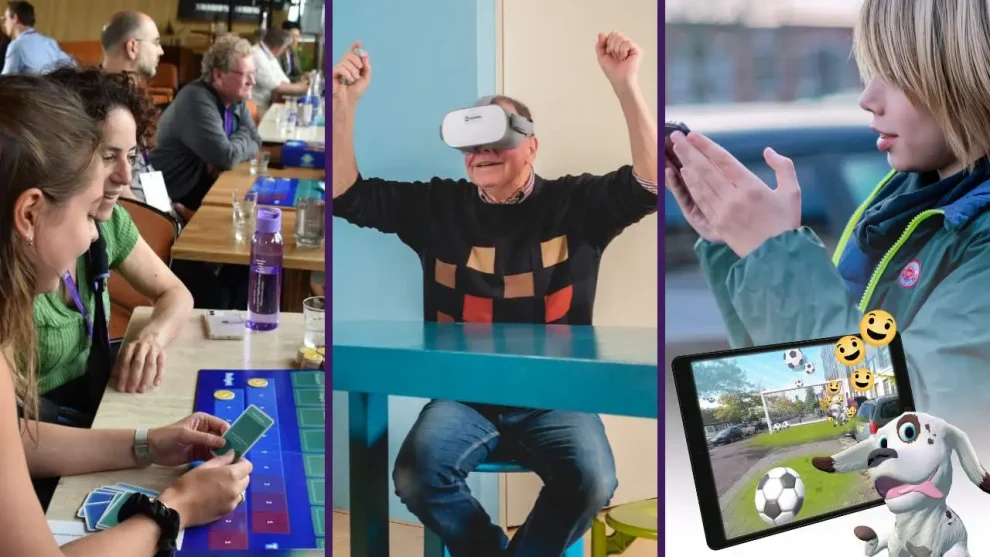
Many people know about the existence of serious gaming, but find it difficult to form a concrete picture of the phenomenon. What exactly does it mean for different sectors and what kind of applications can you think of? To help you on your way, in this article we list some inspiring (and above all: diverse!) examples of serious games. From training medical professionals to improving teamwork within organizations – these serious games show how gaming can be a solution for very specific challenges.
Together with knowledge institute Deelkracht, we developed a mobile game about Supported Communication, often referred to as OC. The goal: to show parents, professionals and children with a communicative disability in an easy and fun way what Supported Communication (OC) is all about – and above all: what OC can mean for their own communication needs.
In the game, you explore the use of OC in everyday situations. You start in a house and can then navigate through different rooms: the bathroom, the bedroom, the kitchen, the living room and the attic. In each room, the player encounters pre-programmed icons. Pictos that can be used for all kinds of those daily activities such as sleeping, reading, washing, eating or taking a walk. In the attic there is additional information available for parents, caregivers and practitioners about OC, including tips on how to step up to specialized OC tools.
A nice additional feature is the ability to create a custom “picto library. Children, parents and professionals can choose the most appropriate form themselves: draw an icon, take a picture and/or add a sound. This makes the game very versatile. That’s great, because it creates the opportunity to give a broad audience a positive first introduction to Supported Communication in an accessible way – simply at home, together.
An extensive co-creative design phase and one preceded. Researchers from Deelkracht played an important role in this, as did the intended end users. The game is available for free via the Google Play Store and the Apple App Store. Search for “Supported Communication Game” and try it out for yourself to get an even better idea!
“Met de game maken we Ondersteunde Communicatie laagdrempelig en halen de druk eraf om het perfect te doen. Het gaat vooral om samen plezier maken en contact leggen.”

Onderzoeker & Projectleider bij Stichting Deelkracht
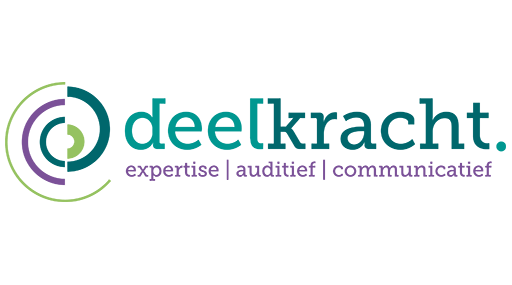
“De mensen van 8D Games ervaar ik eveneens als charismatisch en gepassioneerd. Daarnaast werken ze heel gestructureerd. Wij hebben al heel wat internationale samenwerkingen gedaan en dat ook wel eens anders meegemaakt. Shkorey is tot nu toe echt een smooth ride.”
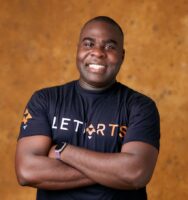
CEO

The game Shkorey (“darling” in Tigrinya) is a digital game that provides Eritrean newcomers to the Netherlands with information about the human body, sexuality, birth care and raising small children in the Netherlands.
As a player, you face challenging situations around relationships, sexuality and pregnancy, helping the main character make choices. Quiz questions test your knowledge of these topics, alone or with friends. The app also includes a social map that directs players to healthcare providers for more information on the topics covered. Currently, local healthcare organizations from the Leeuwarden region are connected, but work is underway to expand the social map to include healthcare organizations throughout the Netherlands.
Together with the Shkorey Foundation, 8D Games is currently working to transfer the Shkorey way of working to other countries and communities. The power of this method lies in bringing together caregivers, newcomers, youth work, creatives and policy makers – and having all these people work together to create a solution that fits the local situation.
A lesser-known way in which serious games are of value: games and research go very well together. Shkorey is a good example of this. Researchers from Rutgers Knowledge Center Sexuality conduct qualitative research with two focus groups: Eritrean youth and caregivers in different areas of the Netherlands. In addition, a number of research questions are implemented in the game and professionals complete questionnaires.
For parents of children who are deaf or hard of hearing, it is quite a challenge to start working with sign language and/or Dutch with Signs (NmG) themselves. Through a co-creation process we investigated whether a game could help parents and children to practice this together. Cozy from the home situation. Conclusion: yes, it can!
Together with Pento Audiological Center we developed a game in which a mermaid and a fish with hearing problems must work together to get the underwater house ready for visitors. But then again, underwater there is no sound … so the two characters have to communicate with each other using gestures. Think of the gesture for “milk,” “tired,” “ball,” “book” and so on. All concepts that fit the daily life of young children.
We called the game Handlantis. In the cheerful underwater world of Handlantis, parents of hearing-impaired and deaf children learn to communicate with their child in a playful and effective way. The game makes it easier and more fun to practice NmG. And above all: to keep practicing! After all, repetition is extremely important when learning a new skill. Learning in game form supports people in maintaining motivation – especially in language learning.
It is an approach that appeals not only to parents, but also to other family members, neighbors and even grandparents. Playing a game in familiar surroundings is more approachable than taking a formal course. And the child with hearing problems? Who has suddenly become the expert with whom everyone wants to practice. That contributes to the dream impact of the game: ensuring that children with hearing difficulties can really participate.
“Als nieuwe ouder komt er veel op je af en dan hoor je ook nog eens dat je gebaren zou kunnen leren. Met de game kan je alvast een voorproefje nemen en zien hoe leuk het kan zijn om te gebaren.”

Pento Audiologisch Centrum Friesland
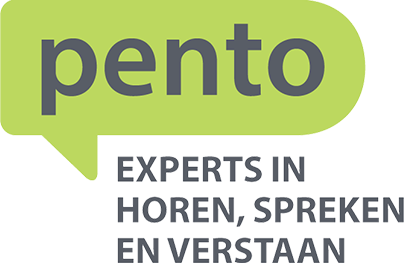
“Studenten vertellen dat ze het fijn vinden om op deze manier meer te leren over het onderwerp, maar ook om er met elkaar over in gesprek te gaan. Het spel verlaagt de drempel om ideeën uit te wisselen.”
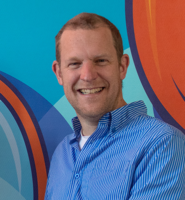
Docent-onderzoeker

The educational board game Om Tafel challenges players to manage the business takeover of the Beukeboom family – agrarians at heart. Each player is assigned a specific role, ranging from in-laws (who also want to have their say!) to the departing farmer struggling with the upcoming changes. During the game you develop an understanding of the interests and emotions of the character you represent, and also learn about the considerations of other family members.
Although many people immediately think of digital games when they think of serious games, this is not always the most appropriate option. Especially when the goal is to get a conversation going, an “old-fashioned” board game or card game can actually be more effective. Such is the case with Om Tafel. After several brainstorming sessions between researchers and students from the Animal and Animal Husbandry program at Van Hall Larenstein, an educational board game appeared to be the most appropriate form.
That has been a good choice, because: this colorful board game about agricultural business acquisition is not to be sneezed at! Because of considerable interest, Van Hall Larenstein University of Applied Sciences has had new copies printed. And meanwhile there is even a Frisian version of the game available. The college has also organized group courses for game facilitators so that even more students can get started with game-based learning about farm takeovers.
Serious gaming doesn’t always have to be digital – and besides, you don’t always need a full-blown serious game to achieve your goal. Sometimes a few slack games are enough to increase motivation and fun. A good example: the creative swimming lesson books we are developing with our long-time collaboration partner Skander Chahider.
The swimming lesson books make clever use of storytelling and gamification. For each book, initiator Skander Chahider writes a story that relates to the experiences of children in the region. We then design matching characters, prints, tokens, merchandise and everything else.
The stories are not only fun and exciting, but also prepare children (through those cheerful regional characters) for the skills covered in swimming lessons. In addition, the colorful collectibles make the children’s progress transparent. That motivates!
Meanwhile, the swimming lesson concepts already in use at 120 locations in the Netherlands. Results show that significantly more children progress to the B and C diploma, as they become intrinsically motivated to continue earning thematic rewards.
“Een concept bouwen rondom zwemles werpt zijn vruchten af. Resultaten laten zien dat significant meer kinderen doorstromen naar het B- en C-diploma, doordat ze intrinsiek gemotiveerd worden om door te gaan met het verdienen van thematische beloningen.”

Eigenaar
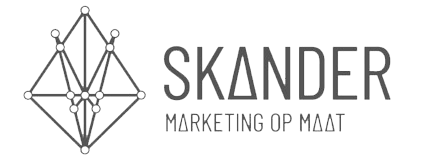
“Het spel heeft ons gemotiveerd om geld in te zamelen voor de Voedselbank, het is leuk dat je iets voor mensen kunt doen met geldproblemen.’
Speler van BAAS in gemeente Tytsjerksteradiel

The mobile game BAAS – with the use of augmented reality – connects children with neighborhood residents in their own neighborhoods. Players talk to the neighborhood about all kinds of topics. Both fun and silly things and a more serious theme, namely poverty and the role poverty plays in their own neighborhood.
In BAAS, a little dog guides kids through their own neighborhood: but in augmented reality! The little dog takes players through questions about poverty and also leads them to fun mini-games. Soon the kids are enthusiastically engaged: they shoot penalties while Bonnie is goalkeeping, answer questions about money…. and then quickly move on to the next item: tug of war!
The route is pre-filled by the community workers through the backend, so that everything fits perfectly in the right streets. All answers from the serious game about poverty are stored (in accordance with the AVG) in a database. This data can be used for further research on the perception of poverty in the respective neighborhoods, making the game even more impactful.
Change is not easy. Let alone change in the workplace. Sometimes there is resistance at play that complicates the conversation, for example because employees are afraid their jobs will disappear or because they are afraid they will not be able to keep up with developments. The rise of artificial intelligence is one such change situation that can create difficulties. Still, it is important for any organization to think (and talk!) about the impact of AI on their work practices.
For such purposes – training and discussion of professional topics – serious gaming is well suited. A striking example is AI+ Hospital, which we developed for Data Science Center in Health at the University of Groningen Medical Center. In this game, players engage in different patient journeys and are challenged to think about the question, “Can AI be applied in this situation in a variety of scenarios? If so, what are the ethical, legal and societal consequences?’
AI+ Hospital creates in-depth course on the use of AI in the healthcare context. The board game is frequently used at conferences, symposiums and during educational activities.
‘‘Het komt wel eens voor dat mensen na afloop van de speeltijd nog willen doorgaan, omdat ze te nieuwsgierig zijn naar hoe het afloopt met de fictieve patiënt.“
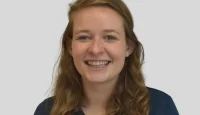
Data Scientist AI & Complex Data

‘Zelf meedoen aan zo’n training geeft ons een beter beeld van de reanimatieprotocollen die we gaan simuleren in VR, en vooral: in welke opzichten VR echt iets kan toevoegen aan het leerproces.’

Creative Director 8D Games
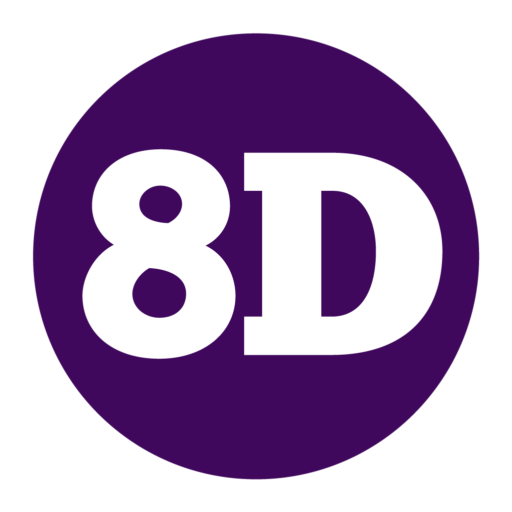
Serious gaming can also supplement (or in some cases: replace) group training in the workplace. Especially when it comes to skills that need to be repeated frequently in order to maintain their knowledge. Depending on the requirements, a serious game aimed at training a particular skill can solve all kinds of logistical and human problems. Consider lack of motivation (reading a dusty manual is not necessarily fun…) or the challenge of finding a time when the whole team can participate in a group training session.
One cutting-edge example: we are working with the Leeuwarden Medical Center to develop a virtual reality training course on newborn infant resuscitation. Our goal is to provide doctors and nurses with an accessible way to practice newborn CPR procedures – repeatedly and at a time that suits them. This complements the group training that healthcare providers are already offered.
The result is a life-like virtual reality experience that allows professionals to go through the steps of the resuscitation process. For this prototype, initiator and pediatrician Marije Peters won the Innovation Challenge of OOR-NO! The prototype is expected to be developed further in 2024.
Regularly in the news: another drug lab has been rounded up. Sometimes it is a hemp plantation, other times an entire lab where synthetic drugs are manufactured. How do you train housing workers, police officers and civil servants to better pick up signals that indicate this type of crime, so that we as a society can better act against undermining crime? Walking around the location itself is usually impossible – that’s unsafe. But recreating such a location in virtual reality and letting people experience it in a lifelike way is possible. It is possible! In the VR training DrugsviewVR, the player must first look for five signs of undermining. Once these are found, you gain access to the cannabis plantation or drug lab through a secret entrance. These rooms are set up to look exactly like a real drug premises, including all the dangerous materials found in them.
When you go looking for examples of serious games, you often see them solving a similar logistical problem. Instead of having everyone come to a drug lab (inconvenient, unsafe and simply not feasible), the cannabis plantation comes to you in the form of a VR game.
Meanwhile, the VR experience on undermining has been complemented by a laptop game: Viewing Undermining. Our partners at Narcotics Bureau deploy both training games at events and safety days – and always they can be counted on a lot of interest and enthusiasm!
Of course, there are many more examples of serious games. This is just a sampling of the projects we have completed over the past decade. Need more reference material? Check out our project pages or even better: just come and have a cup of coffee with Maarten or Johan.
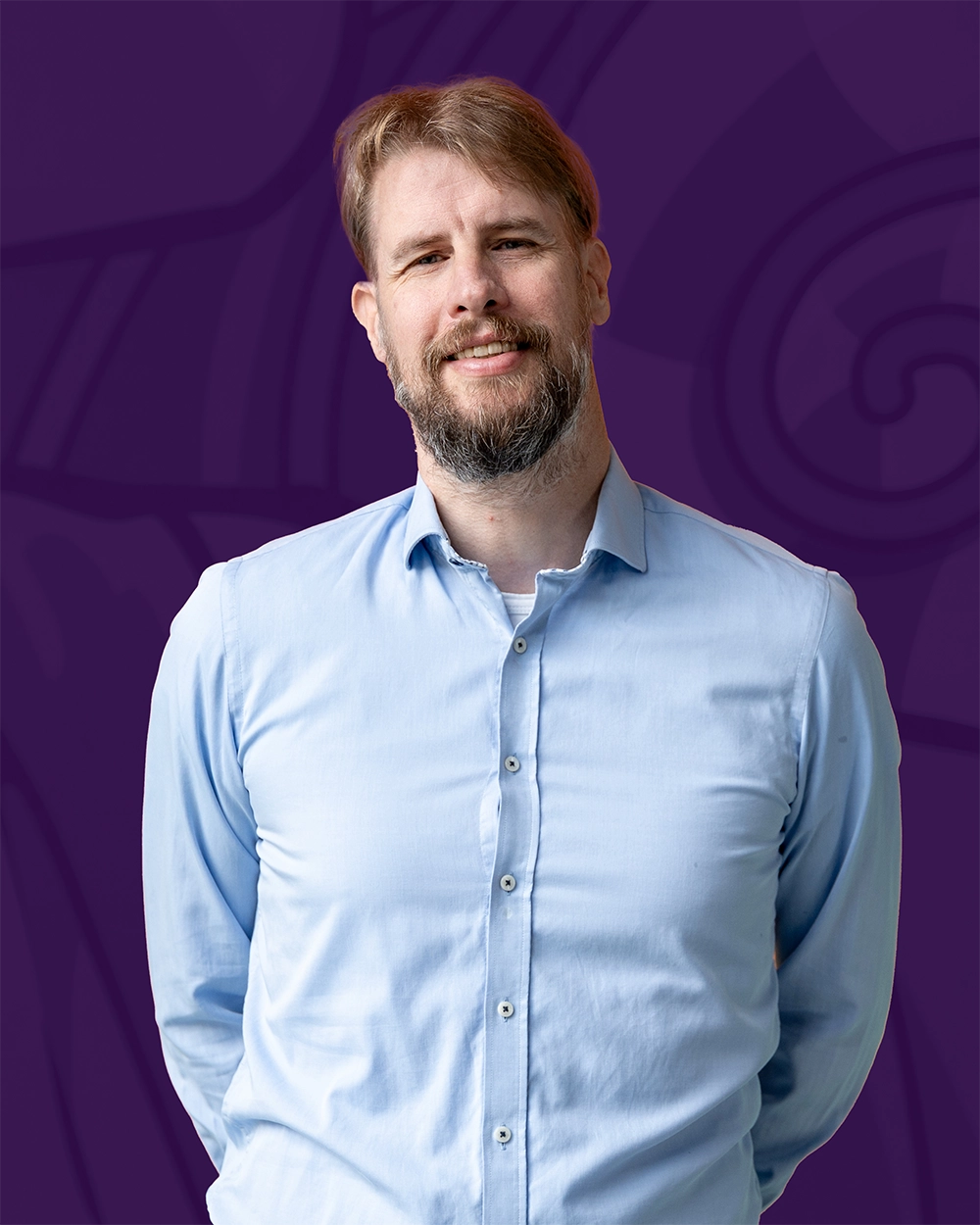
Come have a cup of coffee with Maarten!
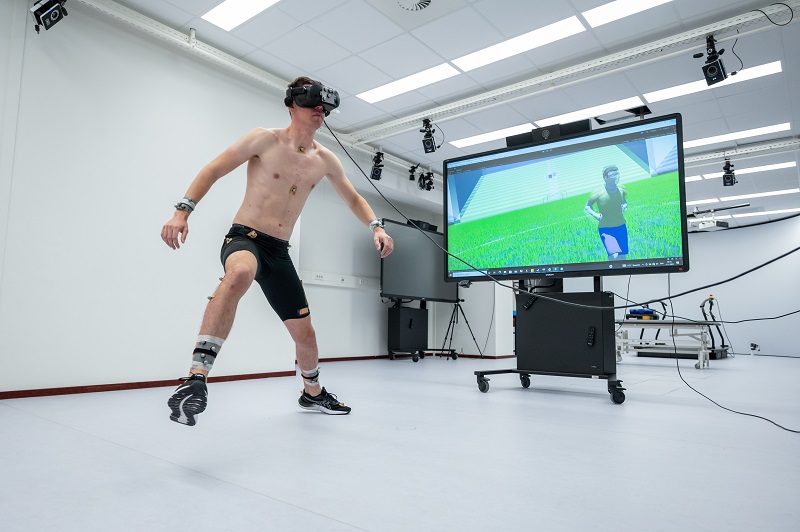
Serious Games as a Research Tool Games as a Method Serious games can contribute to scientific research in many different ways and at many different stages. Think of collecting quantitative…
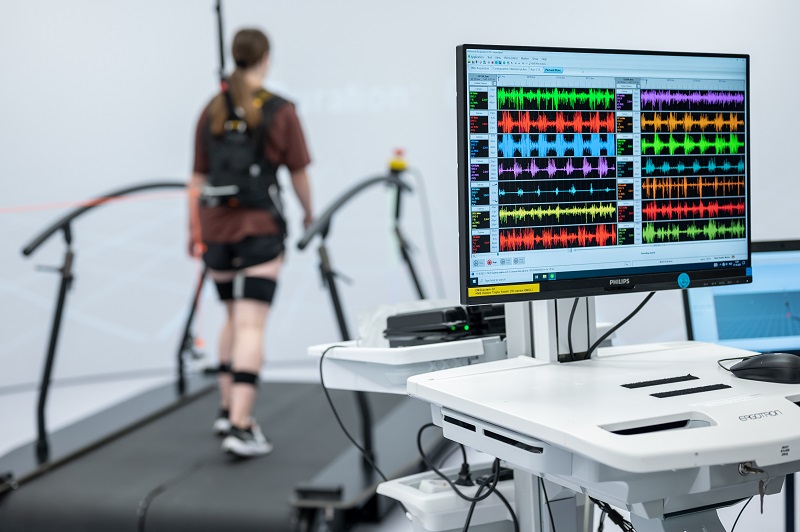
Serious games for healthcare are making their rise. But if you have never used such a game yourself, the whole idea remains somewhat abstract. What added value do games have for healthcare and what concrete examples are there? Get inspired by cases from our portfolio.